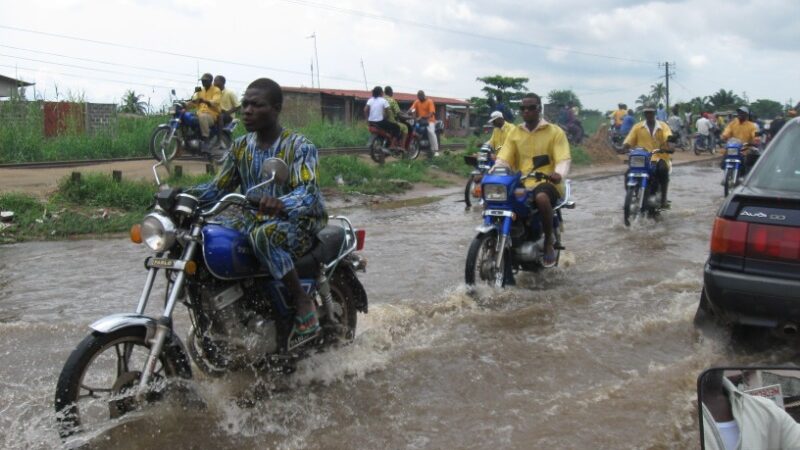An interactive site recently published by Future Climate for Africa (FCFA) showcases the research of FCFA in urban Water, Sanitation and Hygiene (WASH) systems across the continent.
It provides an overview of the status of urban WASH systems in countries and cities where FCFA has been working and the climate risks these WASH systems are facing. Further, it aims to highlight the relationship between future climate and effective WASH service delivery in African cities.
Impact of climate change on East Africa’s urban WASH systems – insight from HyCRISTAL’s research
The climate of East Africa will continue to warm with rainfall events becoming more intense resulting in flash flooding. These flash floods will impact the urban sanitation service delivery in East Africa and contribute to negative health outcomes. As the urban areas grow, so the problem will get worse especially with low priority placed on investment in urban drainage construction and management. Further the high turbidity of watercourses increases the cost and complexity of water treatment.
Historically, there has been sufficient regulation and monitoring of WASH systems but there is limited funding for management especially with regards to sanitation and hygiene services. For example in Uganda and Kenya, only 33% of the population have a basic level, 34% have a limited level and 33% have no facility for access to hand-washing facilities at home. This highlights the current state of sanitation service delivery and the need for increased investment and action in this area especially during the Covid-19 pandemic when hygiene is of the utmost importance and when the impacts of climate change are increasing.
Climate actions and infographics outlining three probable climate futures for Kenya and Uganda – hotter and wetter, hotter and more extreme events and hotter and drier – have been developed in the new interactive WASH site. For example in a hotter and wetter Kenya, some of the recommended actions to improve WASH services are; increasing the resilience (eg. increased operational budgets for drain clearance and maintenance and improved flood defences), adaptive urban development (e.g. climate sensitive urban planning) and infrastructure investment (e.g. resize drains and add sustainable urban drainage elements to accommodate future flood events).
Visit the site to explore the various climate adaptation actions related to the three probable climate futures in East Africa.
Research was also conducted for West Africa, Southern Africa and Malawi and Tanzania, visit the site to find out how climate change will also impact WASH systems in these regions.
Key messages for climate scientists and WASH practitioners
For climate scientists and experts: Relevant and useful climate information for cities in many cases is not readily available or not translated into decision-making. Oftentimes the headline messages around future climate are what is needed to inform resilient infrastructure development, rather than multiple very detailed datasets.
For WASH practitioners: Many cities in Africa still have significant backlogs in WASH service delivery and are already impacted by climate variability. Focus on the basics – good active management of existing systems and infrastructure is a cost-effective way to enhance resilience, no matter how the climate changes in the future.
Visit the urban WASH site to learn more.
This post was sponsored by Future Climate for Africa. See our editorial guidelines for what this means.
